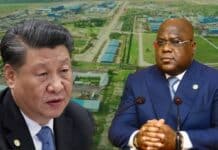Political restructuring has been a recurring subject in Nigeria’s political discourse, advocated as a solution to many of the challenges facing the country. The concept of restructuring encompasses various ideas for reforming Nigeria’s political, economic, and administrative frameworks, with the aim of addressing inequalities, enhancing governance, and fostering national unity. In recent years, the call for restructuring has grown louder, with advocates arguing that Nigeria’s centralized system limits the autonomy of states and hampers development. This article examines the prospects and challenges of political restructuring in Nigeria, exploring the motivations behind the call for restructuring, possible models, and obstacles to implementation.
What is Political Restructuring?
Political restructuring, in the Nigerian context, refers to rethinking and potentially redesigning the country’s political structure to promote a more balanced distribution of power and resources between the federal and state governments. Proponents argue that Nigeria’s current system, which grants considerable power to the federal government, is inefficient and has contributed to socio-economic disparities among regions. The restructuring debate encompasses various proposals, including changes to revenue allocation, control over resources, devolution of power, state policing, and even a reconfiguration of Nigeria’s current 36-state structure into larger regions.
Motivations Behind the Call for Restructuring
1.Inequitable Resource Distribution: Nigeria’s wealth, particularly in oil, is concentrated in the Niger Delta region, yet the central government controls the revenue generated from these resources. Many argue that a greater portion of this revenue should be allocated to the states where resources are located to promote local development and address environmental impacts.
2.Centralization of Power: The concentration of power at the federal level limits the ability of states to make decisions that meet the unique needs of their local populations. For instance, education, health, and security are often managed through federal policies, which can overlook regional differences. This centralization has led to inefficiencies, and many believe that allowing states more autonomy could improve governance.
3 Regional Imbalances and Ethnic Tensions: Nigeria’s diversity is both a strength and a challenge. Ethnic and regional disparities are exacerbated by the perception that some regions receive preferential treatment from the central government. Restructuring could help alleviate ethnic tensions by creating a more equitable political framework that provides all regions with a fair stake in the nation’s development.
4.Security and State Policing: Nigeria’s rising security challenges have spurred calls for state policing. Currently, law enforcement is centrally controlled, which limits the ability of states to address local security concerns effectively. Advocates of restructuring argue that granting states the authority to form their own police forces could enhance security by enabling a more localized and responsive approach.
Models of Restructuring: Possible Approaches
1.Fiscal Federalism: Fiscal federalism proposes decentralizing fiscal responsibilities, allowing states to retain more of the revenue generated within their borders. This model emphasizes local resource control, where states can control their resources and fund their development without relying heavily on federal allocations. Proponents believe fiscal federalism could drive economic growth, reduce dependency on oil revenue, and encourage states to diversify their economies.
2.Regionalism or Zonal Restructuring: Some advocates propose reducing Nigeria’s 36 states into larger regions or zones. This regional restructuring model would likely create six geopolitical zones, allowing states within each zone to share resources, infrastructure, and administrative responsibilities. Regionalism could reduce administrative costs and foster cooperation among states while promoting economic and political unity within regions.
3.Devolution of Power: Devolution would involve transferring more responsibilities from the federal government to state and local governments. This approach emphasizes state autonomy in sectors such as education, healthcare, and infrastructure, allowing states to create policies tailored to their needs. This model could help reduce the workload of the federal government and improve governance at the grassroots level.
4.State Policing: State policing is another aspect of restructuring that has gained significant support. Allowing states to form their own police forces would empower them to address local security challenges more effectively. However, concerns about misuse of power by state governors and local officials mean that this model would require regulatory oversight to prevent abuses.
Challenges of Political Restructuring
1.Constitutional and Legal Constraints: The Nigerian Constitution grants significant power to the federal government, and altering this requires constitutional amendments. The process is complex, requiring the support of a two-thirds majority in both the National Assembly and approval from at least two-thirds of Nigeria’s state legislatures. Achieving this level of consensus is challenging, especially given the vested interests of those who benefit from the current system.
2.Political Resistance: Restructuring would reduce the power of the federal government, a change that is often resisted by those in power at the federal level. Political elites who benefit from centralization may be reluctant to support restructuring, fearing a loss of influence and control. Additionally, regions that receive substantial federal allocations may resist changes that could impact their revenue streams.
3.Economic Viability of States: A shift toward fiscal federalism would require states to become economically self-sufficient. However, many states currently rely on federal allocations, as they do not generate sufficient revenue independently. Implementing fiscal federalism without adequate preparation could exacerbate economic disparities, particularly for less wealthy states that may struggle to sustain themselves financially.
4.Ethnic and Regional Tensions: While restructuring aims to address ethnic and regional disparities, the process could also heighten tensions. Some groups fear that restructuring could lead to domination by certain ethnic or regional groups, especially if restructuring includes creating larger regions. Balancing regional autonomy with national unity would require careful consideration to avoid deepening divides.
5.Lack of Public Awareness and Engagement: For restructuring to succeed, public support and understanding are crucial. Many Nigerians may not fully understand the complexities and potential impacts of restructuring, making it challenging to build widespread support. Effective public engagement, including educating citizens on the benefits and implications of restructuring, would be essential to ensure popular buy-in.
The Prospects for Restructuring: Moving Forward
Despite the challenges, the prospects for restructuring in Nigeria remain promising. Growing public awareness and advocacy for reform have pushed political leaders to consider restructuring as a viable pathway toward improving governance. To move forward, certain steps can be taken:
1.Public Dialogues and Consultations: Engaging Nigerians in discussions about restructuring is essential. Town halls, public forums, and educational campaigns can help citizens understand the potential benefits and address any concerns. This engagement would foster an inclusive approach to restructuring, ensuring that reforms reflect the aspirations of all Nigerians.
2.Incremental Reforms: Rather than implementing sweeping changes, incremental reforms could pave the way for more extensive restructuring. For example, pilot programs for fiscal federalism or state policing could be tested in certain states to assess their effectiveness and address potential challenges before nationwide implementation.
3.Strengthening State Economies: Preparing states for fiscal federalism would involve supporting them in becoming economically self-sufficient. By diversifying local economies, states can reduce dependency on federal allocations, making them better equipped to manage their resources. Investment in agriculture, tourism, and industrial development can create new revenue streams for states.
4.Collaborative Policymaking: Restructuring should be approached collaboratively, with input from all regions, ethnic groups, and stakeholders. Establishing a bipartisan committee to study and propose restructuring options could help build consensus and address concerns, paving the way for reforms that benefit the entire nation.
Conclusion
Political restructuring in Nigeria offers both challenges and opportunities. While restructuring could address long-standing issues related to inequality, regional disparities, and governance, it also requires careful planning, consensus-building, and commitment from leaders at all levels. The path to restructuring will be complex, but by fostering inclusivity, prioritizing public engagement, and implementing gradual reforms, Nigeria can work toward a more balanced and equitable federal system. In doing so, the country may be better positioned to harness its diversity and strengthen its democracy for future generations.




















